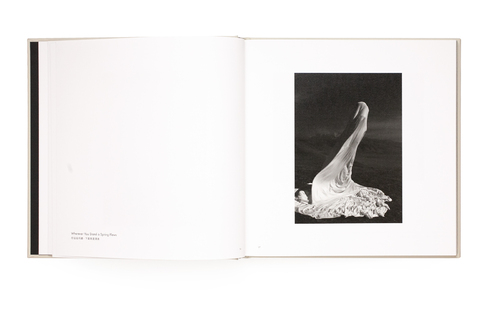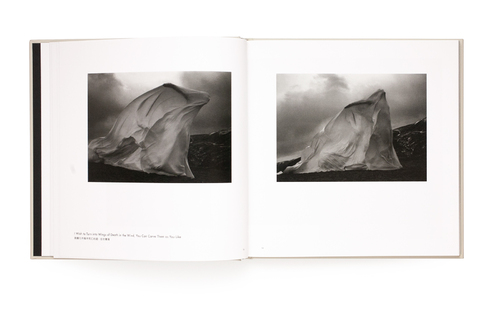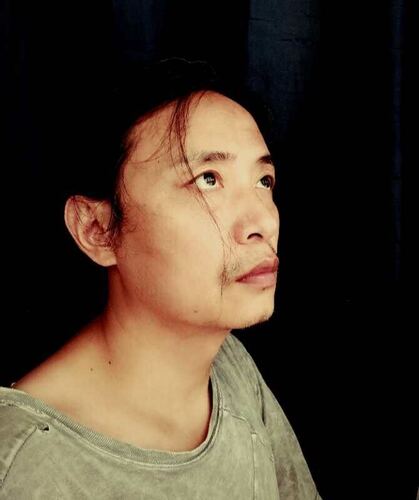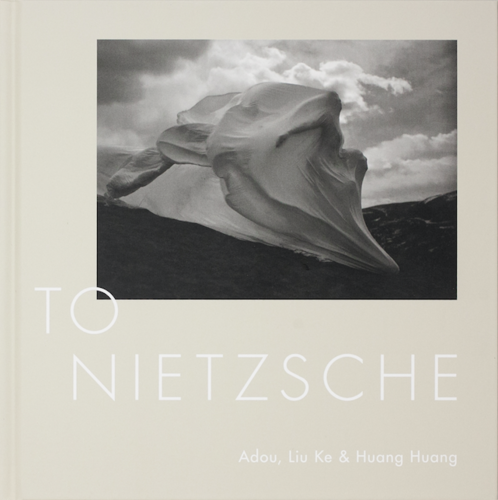Interview: Adou & "To Nietzsche"
Last month, Tokyo-based publisher Zen Foto Gallery released the photobook "To Nietzsche", a collaboration between the Chinese artists Adou, Liu Ke and Huang Huang.
With our interest severely piqued by the mesmerizing and multi-layered images, we have asked Adou five questions regarding the project and its influences.
(English-Chinese translation kindly provided by Zen Foto Gallery’s Bonnie Pong-Wai Ma)
Why Nietzsche? What about his writings and his philosophy has relevance to you in the current world?
Adou: When I was young, the first philosophy book I read was by Sartre. Since then I tend to look at the world with Sartre's existentialism. How the power of democratization will be the flash of light which will light everyone up... And that this kind of life, and the stability of being born as equals, may just be a beginning.
But as I grew up and learned more about society, I gradually realized that this world is so, so far away from the beautiful ideal that "existence precedes essence". The reality that more people are indulged with the secular world and the social class horrifies me. People do not see or believe that they are born with minimum dignity as an individual. When I think about that, I always feel a rejection against the world in me. For some time I thought this may be my own problem, so I shut my mouth and even my eyes. But after a few years, I noticed that I couldn't change myself and realized that things may have gotten even worse, and I felt like I should die.
Perhaps my current mood is not different from Nietzsche's depression back then. Everywhere is full of reasons, profits, hypocrisy, deceit. My chest feels blocked... My understanding of his famous quote "God is dead" is that it’s not arrogance but an outcry from the accumulated depression in his heart!
Perhaps this world does not need philosophy or even truth. But the eagerness to express the dissatisfaction in our hearts is even more precious in this dull and hypocritical reality. Nietzsche was someone who yelled out loud. And yes, I also want to yell out loud!
I think people who understand Nietzsche will not regard Nietzsche as a god, because they are connected in the same way. This is the reason for the title of this work.
Many photographs in the book seem to feature a fight against natural elements, and all images are set in nature. How important is this connection to the series? Would it have worked in human-made environments as well?
Adou: No. Because struggling itself is the best answer we can give to the world. Especially against power, inexorable world, nature and laws... Humans are most impatient, yet they are desperately trying to resist and to break through like a hymn to life (Hymne an das Leben).

Despite the sheets covering the performers’ bodies, their characters seem to undergo a series of complex emotions in the photographs – grief, despair, tedium, acceptance, but also compassion, consolation, elation, grandiosity. Would you say To Nietzsche is a positive or a negative work? Do these two categories apply at all?
Adou: I understand what you mean. Generally speaking, this is a positive work, although it often involves the cruelty of the "truth.” But I must say, did you not find it in action? Life is always rushing itself to death, which may be the meaning of life. It may be the arrogance of humans, but would it be wrong?
The book opens with a short poem written by Nietzsche. How important is the poem to the series itself, and why did you choose these four lines in particular?
Adou: I have actually covered that in the first question, although I didn't answer directly. Submission is not the reason for living as a human. Even if we have to die, we should die vigorously. The saddest thing is not death itself, but obedience.

What other influences from Nietzsche do you recognize in the series?
Adou: What impacted me the most is not the description of specific imaginary scenes in Nietzsche’s poems. His free soul, his multi-perspective attitude, his transformative experiences in life as an individual and his rebellion against society are the parts that attract me the most. Any work with these kinds of values will move me, even if there's only traces of them.
阿斗/Adou
Born in Mianyang, Sichuan Province in 1973, Adou graduated from the Fine Arts Department of Sichuan Aba Normal College in 1995. After a career as a creative director in advertising for 9 years, he decided to quit and currently lives and works as a freelancer in Chengdu, Sichuan Province. Adou has won awards in photography competitions in China, the Netherlands, Japan and the United States, including the Three Shadows Photography Award (2009) and the Japan MIO International Young Photographers Competition for his series "Public Buses & Chinese People" (2005), and an Honorable Mention at the World’s 100 Young Photographers KLM Paul Huf Award (2007). Adou’s photographs have been shown throughout Asia, Europe and the United States, including two major solo exhibitions in New York and San Francisco (2009) and a Retrospective Exhibition in Kyoto (2007). His publications include "Samalada" (Zen Foto Gallery, 2013), "Adou and Samalada" (M97 Gallery, 2013) and "To Nietzsche" (Zen Foto Gallery, 2020).

